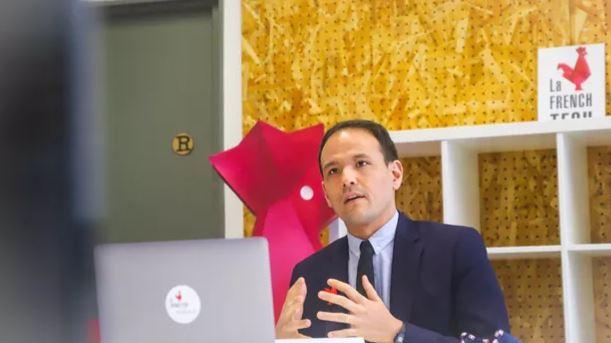By akademiotoelektronik, 25/08/2022
€2.2 billion for AI: Government insists on training to address talent shortage
On the occasion of the France is AI conference organized by France Digitale, the Secretary of State for Digital Cédric O and the Minister of Research and Higher Education Frédérique Vidal traveled to Station F on November 8. They came to announce the details of the 2.2 billion euros – including 1.5 billion euros of public funds – of investments out of 5 in the artificial intelligence sector.
In detail, 700 million euros from the France 2030 plan will be allocated to the training of new talent, while 557 million euros from PIA 4 will be used for fundamental and industrial research. Objectives: to meet the recruitment needs of French companies and research but also to position itself on certain promising subjects such as embedded AI and decentralized architectures.
"Keeping up with the times"
The ministers talk about a second phase of the national strategy for artificial intelligence, echoing the first announcements made in March 2018. Following the report by MP Cédric Villani on AI, the government had announced 1.5 billion euros in investments, rather focused on research, today “very largely spent or committed”, according to Cédric O. “The objective of this first phase was to create a France brand”, recalls the Secretary of State for Digital. Relatively satisfied with the results, Cédric O nevertheless demonstrated caution by recalling that “we are seeing the beginnings of the network effect but that is not enough. If we accelerate, so do the others, and we have to keep up. »
France wanted to consolidate its ecosystem and develop it, and it did so with some success: France Digitale now lists 502 AI startups, with leaders recently becoming unicorns like Contentsquare. These companies employ 13,459 people, a number 30% higher than the previous year.
Addressing the talent shortage

Precisely, this need for talent is felt at the France is AI show: the slogans on the presentation panels seem more oriented towards recruitment than the sale of services. This visual impression is confirmed by the France Digitale barometer on the ecosystem: 64% of startups surveyed cite the lack of talent as a brake on their development. “We imagine that you have to have studied at Polytechnique to work in the sector, but not all positions are for data science. For example, it's almost impossible to find testers,” says Maya Noël, CEO of France Digitale.
Cédric O explains that he also heard about the difficulties of finding talent during questionnaires given as part of the France 2030 plan. This is why the government is making training the main focus of its strategy for AI. "If we manage to have massively more talent, then we will win the race," said the Secretary of State. The funds will finance the training of cutting-edge experts through doctorates but also a whole fabric of lesser-known professions, through shorter courses such as DUTs.
In detail, Minister Frédérique Vidal hopes that 2,000 additional students will enroll each year in the first cycle (DUT, IUT, BTS, license), 1,500 in the second cycle (master), as well as 200 doctoral students. More generally, it also wishes to increase the “minimum level of competence in AI and data science” in training, so that the issues of the sector are better understood by all trades.
Government inflexible on public procurement
Efforts to bring the public and private ecosystem closer together will also accelerate, both on the business side with increased possibilities for mixed careers between research and business, and on the partnership side. In addition to training, nearly 700 million euros will be allocated to research projects, primarily on the subject of embedded AI - both on the hardware and software side - and on decentralized architectures.
While the government has responded to the expectations of the ecosystem on its need for competent employees, it has not echoed the increasingly recurring calls for the establishment of a public procurement policy. “We do not assume to make a European preference, whereas in the United States, they do not hesitate”, notes Maya Noël. As the director of France Digitale continues, the large public procurement market is still too difficult to access for startups: "to begin with, it does not correspond to the time criterion: a year's wait is too long for startups, which can pivot multiple times over such a duration. Then, the reliability criteria often require having 3 years of seniority, which is not the case for many startups. »
If the State has implemented some measures to make access to calls for tenders more flexible, such as the purchase of innovations (for orders below 100,000 euros), they do not allow startups to fight. Result: at a time when the government insists on reindustrialization, startups cannot yet participate in the movement.
François Manens5 mins
Share:
Related Articles